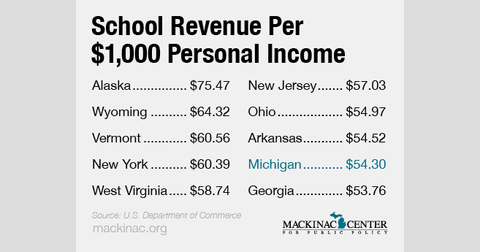Michigan House Republicans Buckle on Obamacare Medicaid Expansion
A Medicaid expansion bill that is a critical component of Obamacare implementation was heavily revised by a Republican-led Michigan House committee on Tuesday, stripping away key reforms that some GOP legislators had previously insisted be included.
Republicans in the House Competitiveness Committee who voted to adopt the watered-down substitute were: Reps. Kevin Cotter, R-Mount Pleasant; Ray Franz, R-Onekama; Frank Foster, R-Petoskey; Ken Goike, R-Ray Township; Gail Haines, R-Lake Angelus; Dan Lauwers, R-Brockway Township; Tom Leonard, DeWitt Township; Dave Pagel, R-Berrien Springs; Mike Shirkey, R-Clark Lake; and Ken Yonker, R-Caledonia.
The bill could be reported to the full House as early as today, and possibly voted on tomorrow or next week. Some of the Republican representatives from the committee have said they will not vote for Medicaid expansion if the bill gets to the House floor.
A week ago, many of the same Republicans had boasted of the reforms that they later voted to remove, said Jack McHugh, senior legislative analyst at the Mackinac Center for Public Policy.
In the previous version of House Bill 4714, the expansion was conditional upon the federal government allowing a package of substantive reforms including a four-year Medicaid benefit cap, and a trigger that would rescind the expansion if federal funding dropped below 100 percent.
The committee heard testimony for just over an hour from a variety of people. McHugh started the testimony by reminding many on the committee of what they have said about Obamacare.
"Back in the districts many of you have told constituents you think Obamacare is a bad law that should be repealed," McHugh testified. "Yet here you are on the threshold of a vote that will further entrench the law ... at the very moment when it is becoming highly vulnerable to a serious course correction."
Scott Hagerstrom, Michigan state director of Americans For Prosperity, said Medicaid expansion would be "the largest expansion of state government in nearly 45 years."
Drew Gonshorowski, a policy analyst for the Heritage Foundation, said future funding for the expansion will be via more taxes and borrowing.
"The Medicaid expansion in the long run will cost the state of Michigan," he said.
One speaker said the politicians will be held accountable for their votes.
David Dudenhoefer, of Michigan’s Campaign for Liberty, said his group scores bills and the votes of politicians.
"Elections do have consequences," Dudenhoefer said.
Democrats who voted yes were: Reps. Paul Clemente, D-Lincoln Park; Andy Schor, D-Lansing; Harvey Santana, D-Detroit; and Kate Segal, D-Battle Creek. Rep. Jim Townsend, D-Royal Oak, chose not to vote.
(Editor's note: This story has been slightly edited since its original posting.)
Michigan Capitol Confidential is the news source produced by the Mackinac Center for Public Policy. Michigan Capitol Confidential reports with a free-market news perspective.


 Michigan senators hold hearings on 9 stranded bills
Michigan senators hold hearings on 9 stranded bills
 Chickens OK in Detroit but not in Midland township
Chickens OK in Detroit but not in Midland township
 SOAR program promised 8,812 jobs, delivered none
SOAR program promised 8,812 jobs, delivered none

 Michigan spends $6.9M advertising 'cost-free' pre-K
Michigan spends $6.9M advertising 'cost-free' pre-K
 Michigan Education board member claims funding cuts after record funding
Michigan Education board member claims funding cuts after record funding
 Whitmer admits education system failing despite increased spending
Whitmer admits education system failing despite increased spending